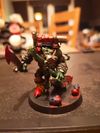How Worlds and Music Enrich Game Experiences
Why the "characters" you can’t interact with are often the most important
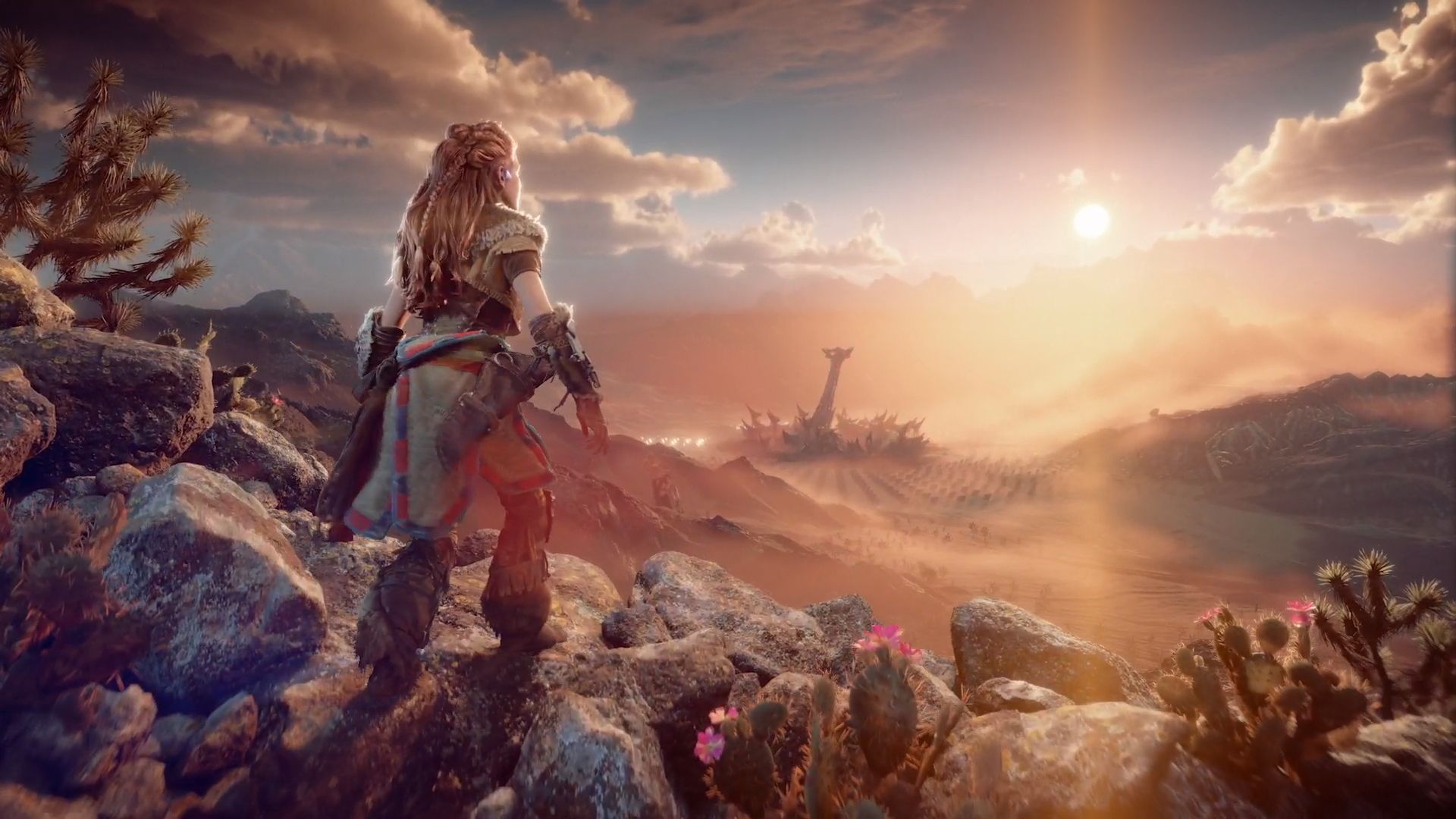
Often as gamers we miss the little things: the bit of foliage on the side of a building, the freckles on a characters face or that one collectible item that’s stopping you from platinuming that game. But sometimes we forget to notice the bigger things; the places and objects that are staring us right in the face and filling our ears. We might describe these as the world and music, which often play the biggest roles in games when it comes to immersing the player.
Let's take a closer look at these two concepts through the lens of The Last of Us Part II in particular (although I'll also touch on Red Dead Redemption 2 and Horizon).

We begin are journey in the not so distant past; it's the turn of the 20th century and you are Arthur Morgan, a outlaw who joined the Dutch van der Linde gang at a young age after being made a orphan. This way of the life - the way of the outlaw - is all you know, but like all things it must come to a end. Luckily for you, Dutch has a plan, "just one more big score" and then you're out of there (perhaps to Tahiti, or maybe Australia...)
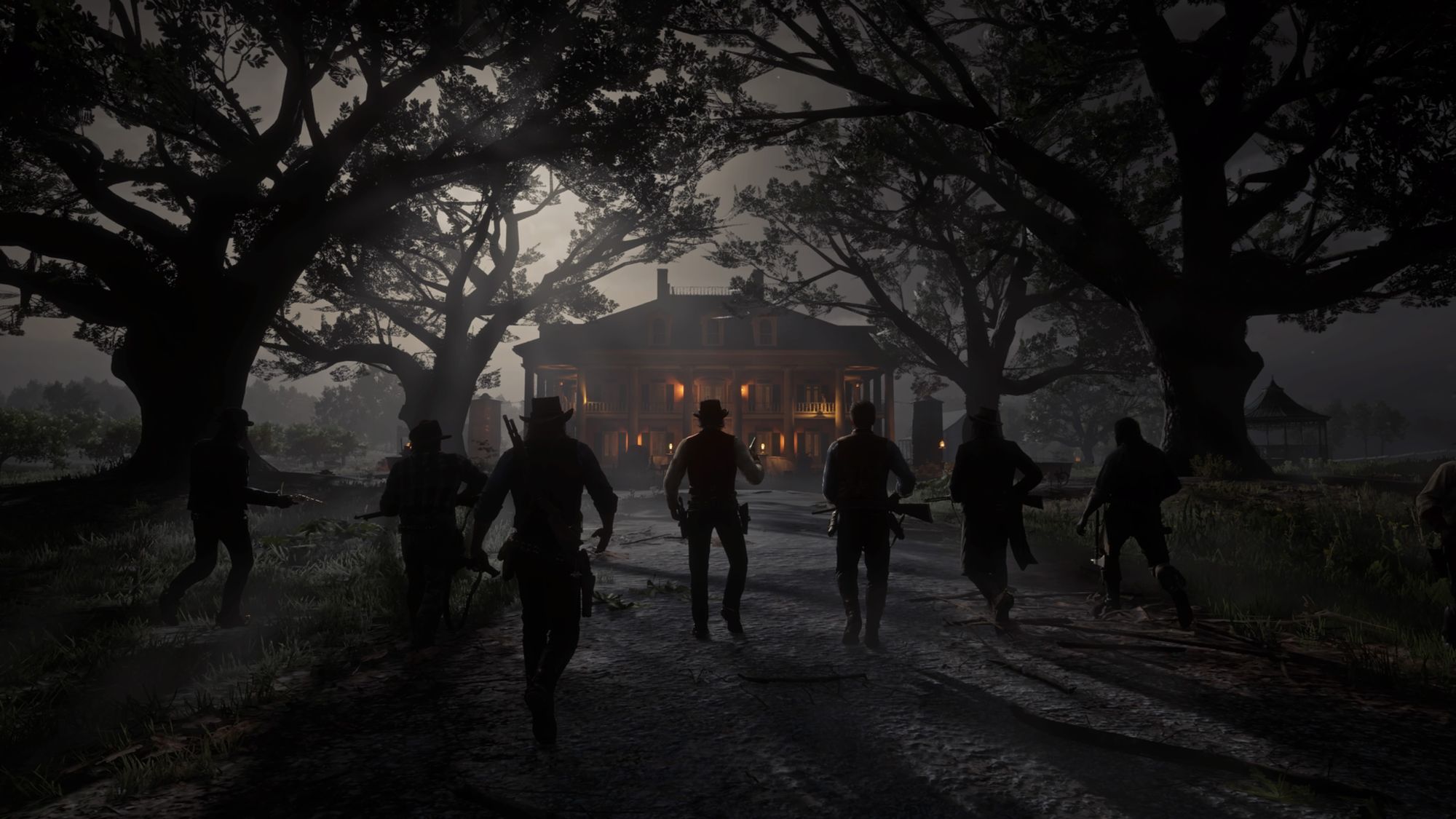
To anyone who's played the first game, it's quite clear to see that Dutch's plan ultimately fails, given that in Red Dead Redemption you (as John Marston) hunt Dutch down. But why all of Dutch's plans fail...well, that's where things get interesting. You see, before the Van der Linde gang lost Hosea in the failed Saint Denis bank robbery, Dutch's plans were competent enough but failed to compensate for one thing: civilisation and everything that comes with it.
For the player, civilisation itself is perhaps the chief antagonist in Red Dead Redemption 2. The world - society - is the game's big boss. Throughout the adventure, the world will throw everything it has at you: from the Pinkertons, to other gangs, to the constant need for money in a society where money equals power (money - or perhaps greed - it just so happens, is the ultimate cause of the gang's demise). The gang might live outside the law, but it can't escape the fundamental rules of living in a civil society - even at the fringe.
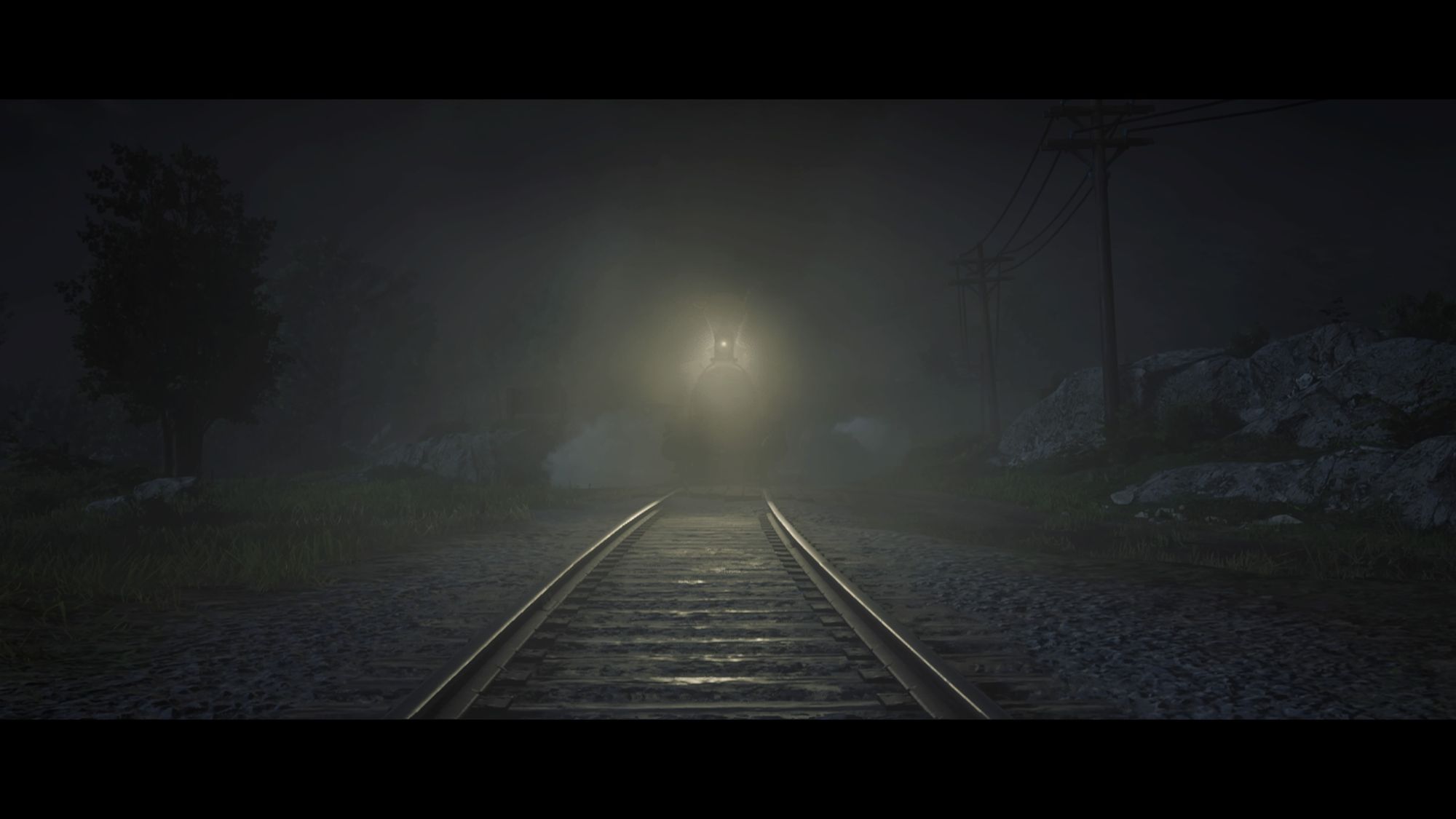
We see the impact this reality has on the gang right from the first couple of hours, as they're running away from the Pinkertons in Blackwater. Why are they running? Because they botched a ferry robbery, and the Pinkertons (themselves a product of society's need to bring outlaws to justice) are chasing them. How does the gang respond to this situation? They rob the train of a wealthy oil tycoon. Why? Because they need more money - they can't survive in the world without it. Needless to say, this caper doesn't go as planned and Cornwall (said wealthy oil tycoon) hires the Pinkertons to hunt down the perpetrators of the train robbery. This cycle of robberies (that the gang relies on to fund their continued existence in society) only leads to continual failure (as society's law enforcers continually tighten their grip on the gang). The failures are cumulative in nature - they put the gang in progressively more precarious positions, until finally, the gang breaks apart and Dutch becomes the target of everyone, including both the authorities and former gang members.
Let's jump forward a good couple of centuries. This is where we find the world of Horizon: Zero Dawn and Forbidden West. The world here doesn't influence the plot in exactly the same ways as in Read Dead Redemption, but it definitely contextualises everything that occurs through both historical lore and a contemporary cultural landscape.
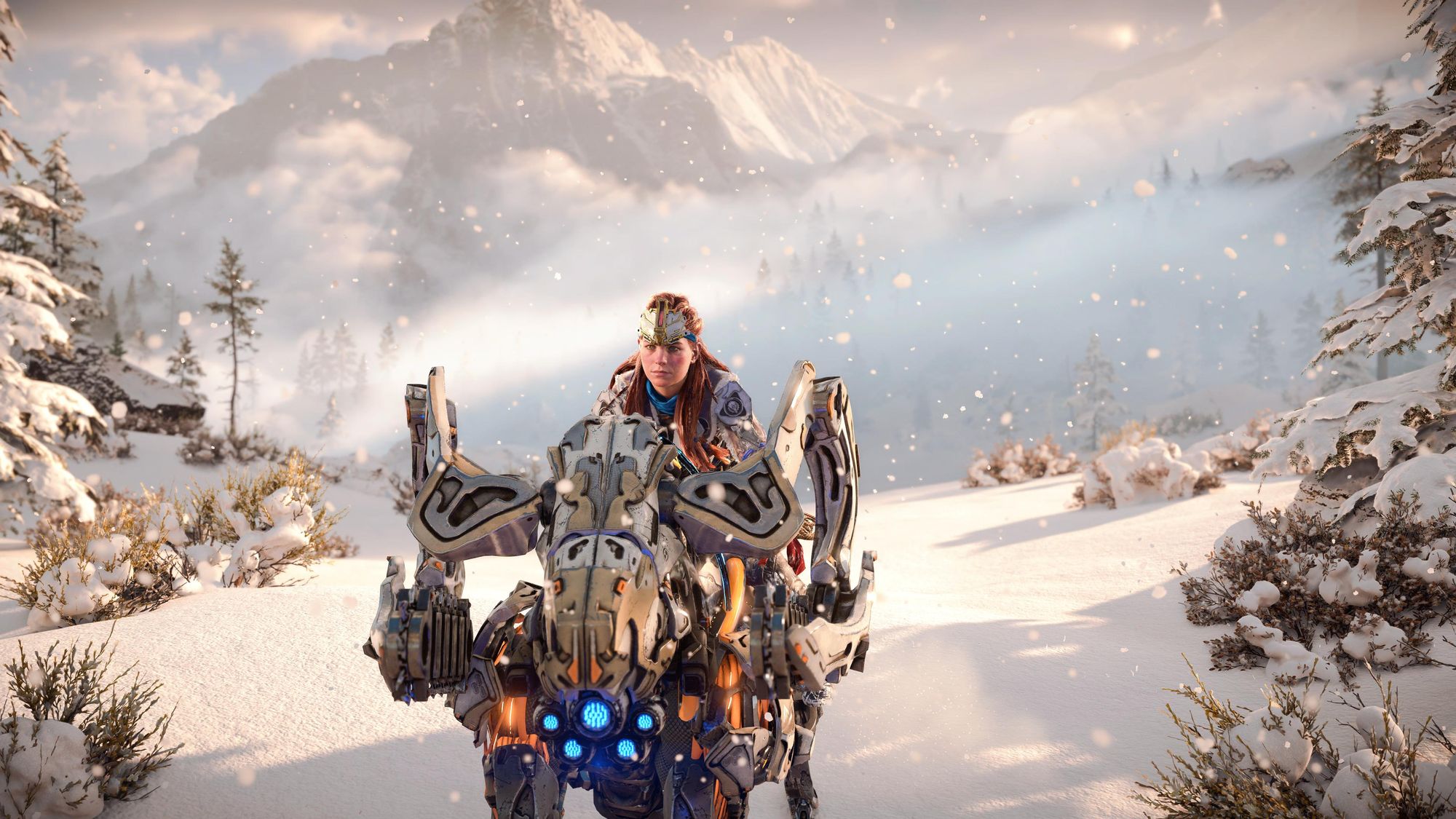
Let's start with the Nora (the tribe that the player character, Aloy, originates from). We can clearly see how the world defines who the Nora are, from their belief in ELTHULIA-9 (a deity referred to as "all mother" from which all life - including machines - originates, hence why the Nora are fundamentally matriarchal) to Horus, that influences their fear of old world technology.
Compare this to a tribe like the Quen, whose entire culture is based around uncovering the secrets of the "old ones". Unfortunately, not much is known about the origins of the Quen, but it's likely that their homeland is similar to that of the Nora, given that they probably grew up in the area surrounding ELTHULIA 1.
Tribes like the Tenakth are similarly fascinated with old world technology. They actually showcase it in a dedicated museum that features achievements of "the ten" (a part of the U.S. Air Force); the Tenakth strive to emulate in everything they do, which explains why they are so focused on being warriors.
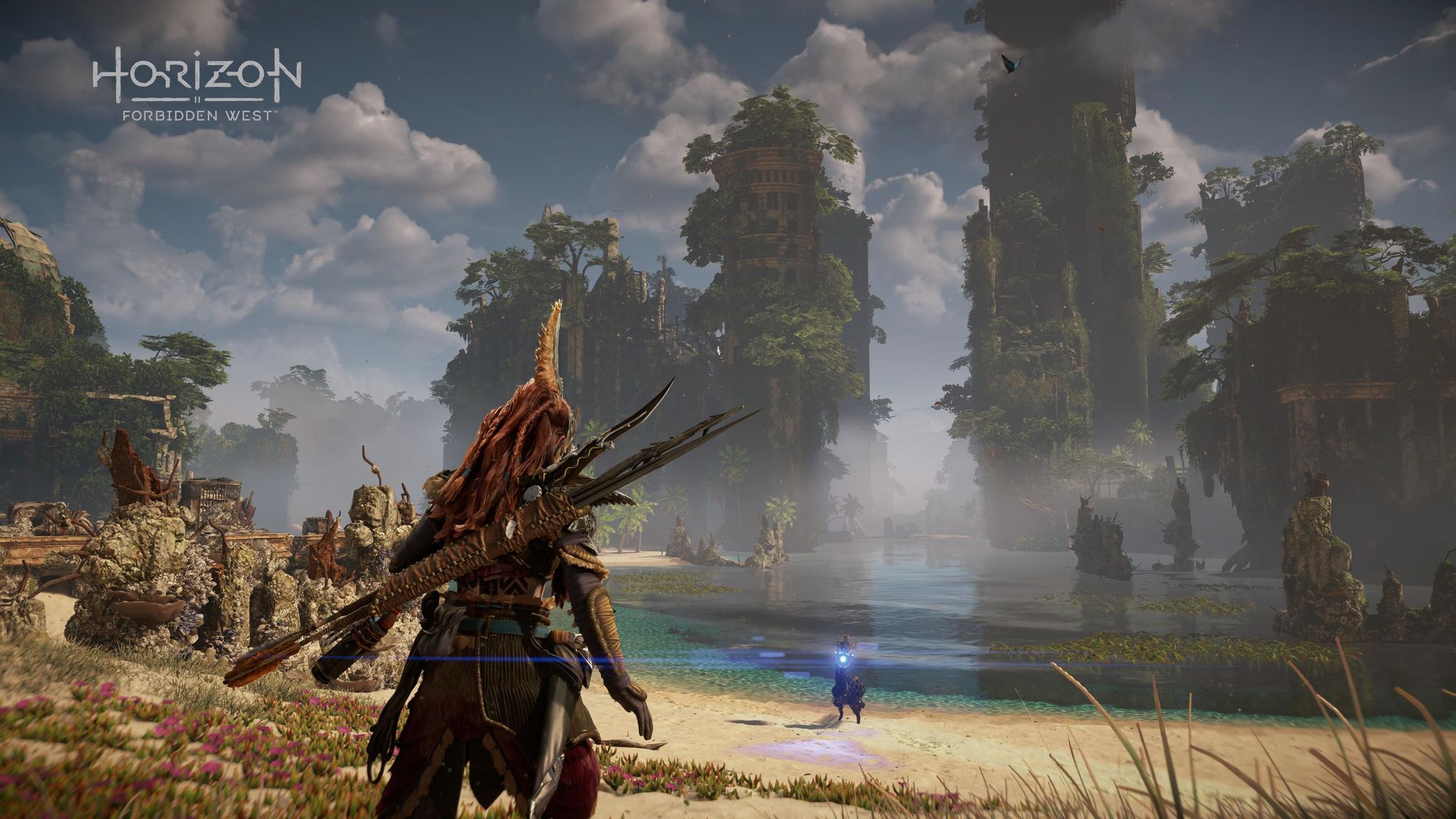
While not necessarily an "enemy" in the same overt way as Red Dead Redemption 2, the world in Horizon occupies something of a deutergonist role, in that it can both directly aid Aloy and hinder her indirectly by influencing some tribes who have goals that don't always align with hers.
I mentioned at the beginning that we tend to neglect both world and music. Let's focus on music. I have deliberately waited until now to touch on it because, while the games I've discussed already have excellent scores, I believe they don't quite come close to how The Last of Us Part II leverages music as a storytelling device.
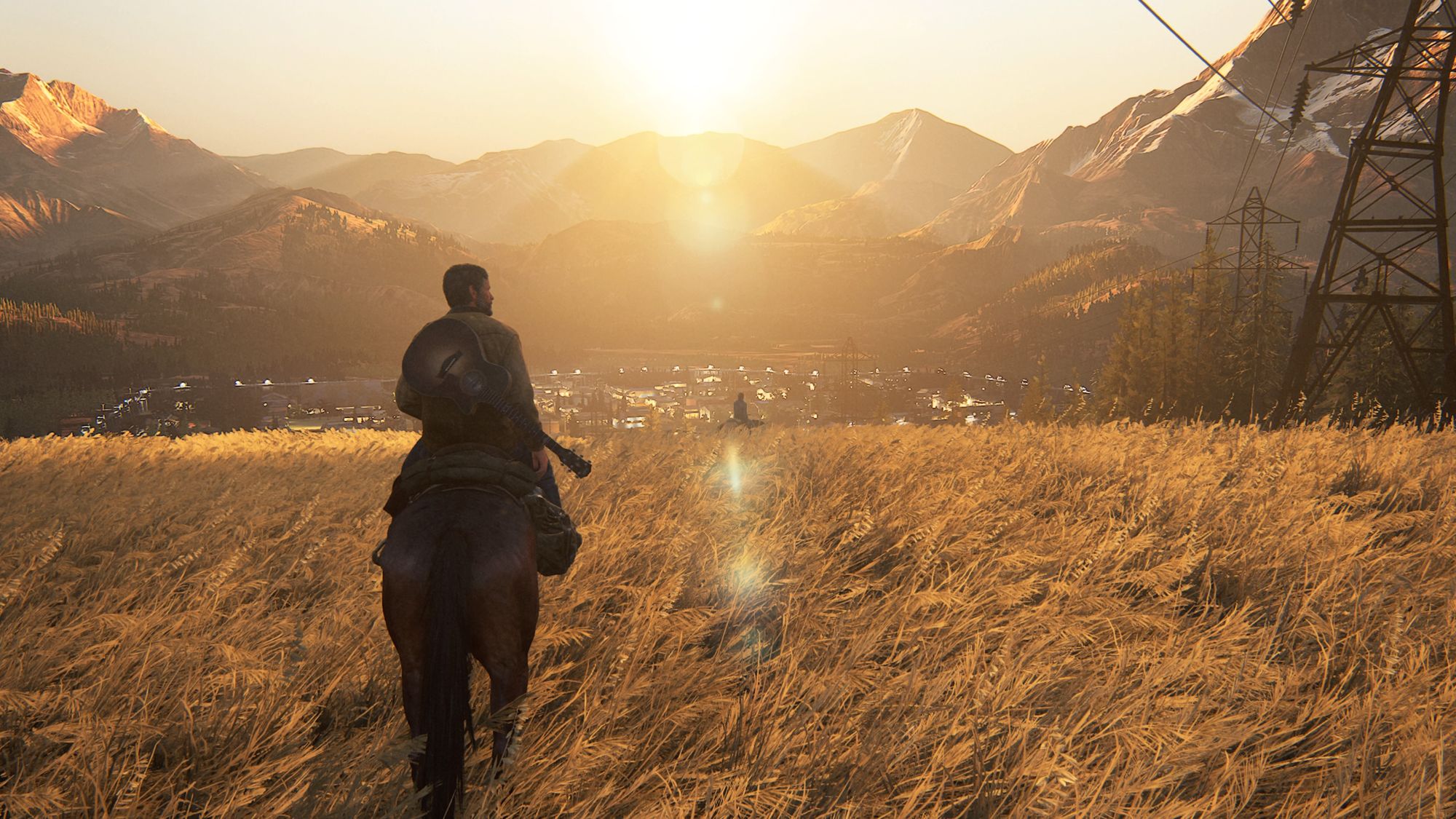
The game opens with this piece by Gustavo Santoaolalla called Unbroken. It's filled with darkness and sadness, while also being punctuated by optimistic and peaceful tones. It speaks to the idea that Joel (a man with very few moral lines left to cross at the start of the first game) has become whole again thanks to Ellie. He's unbroken. The same piece repeats during the inal scene between Joel and Ellie, reinforcing the point.
But this game's obsession with music doesn't end there. It Can't Last (and its many variations) gets played often throughout the game. Like Unbroken, this is a melancholic piece of music. But that's where the similarities end; in this case, there is no hope, no optimism...just sadness and the impending sense that something is coming to an end.
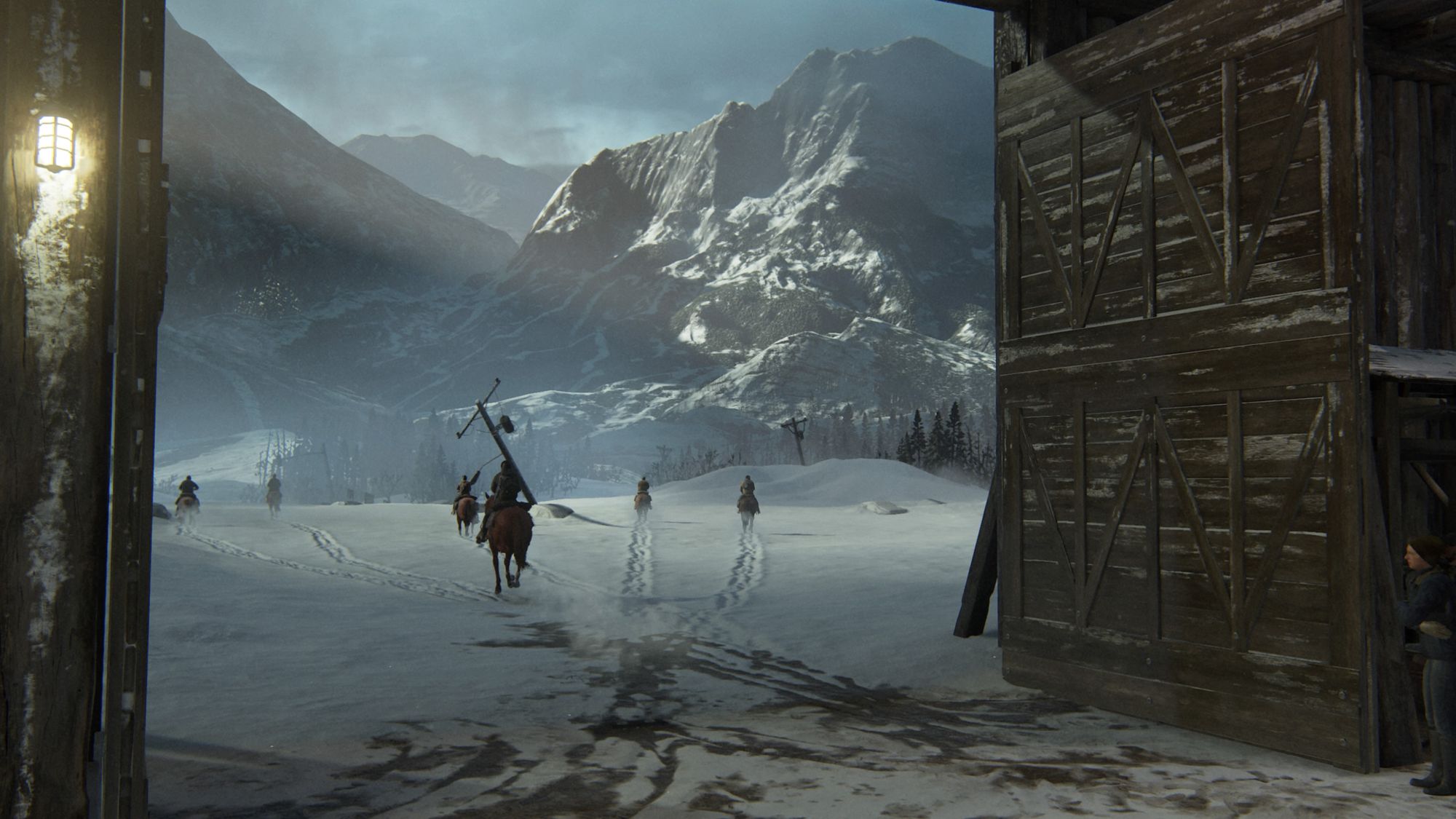
The piece is first played during this early scene in the game (pictured above), and given everything we've been shown about Jackson (how peaceful it was, how everyone mostly got along, and how everyone was happy and safe), it may not be apparent (at least, not unless you look back on the game after its completion) that the song was used to foreshadow traumatic events that play out during the story. In this case, it was the punch in the gut that is Joel's death at the hands of Abby. But the same piece was used often during scenes between Dina and Ellie, signifying that their relationship was fated not to last.
On top of Gustavo's score, we have the licensed tracks Future Days by Pearl Jam, Take On Me by A-ha, and Wayfaring Stranger by Johnny Cash (sung by Ellie and Joel themselves).
Future Days is used to highlight the connection between Ellie and Joel; it's the first thing Ellie will play when picking up the guitar (typically triggering a flashback, but also foreshadowing Ellie's behaviour in the story: "If I ever were to lose you, I'd surely lose myself.")
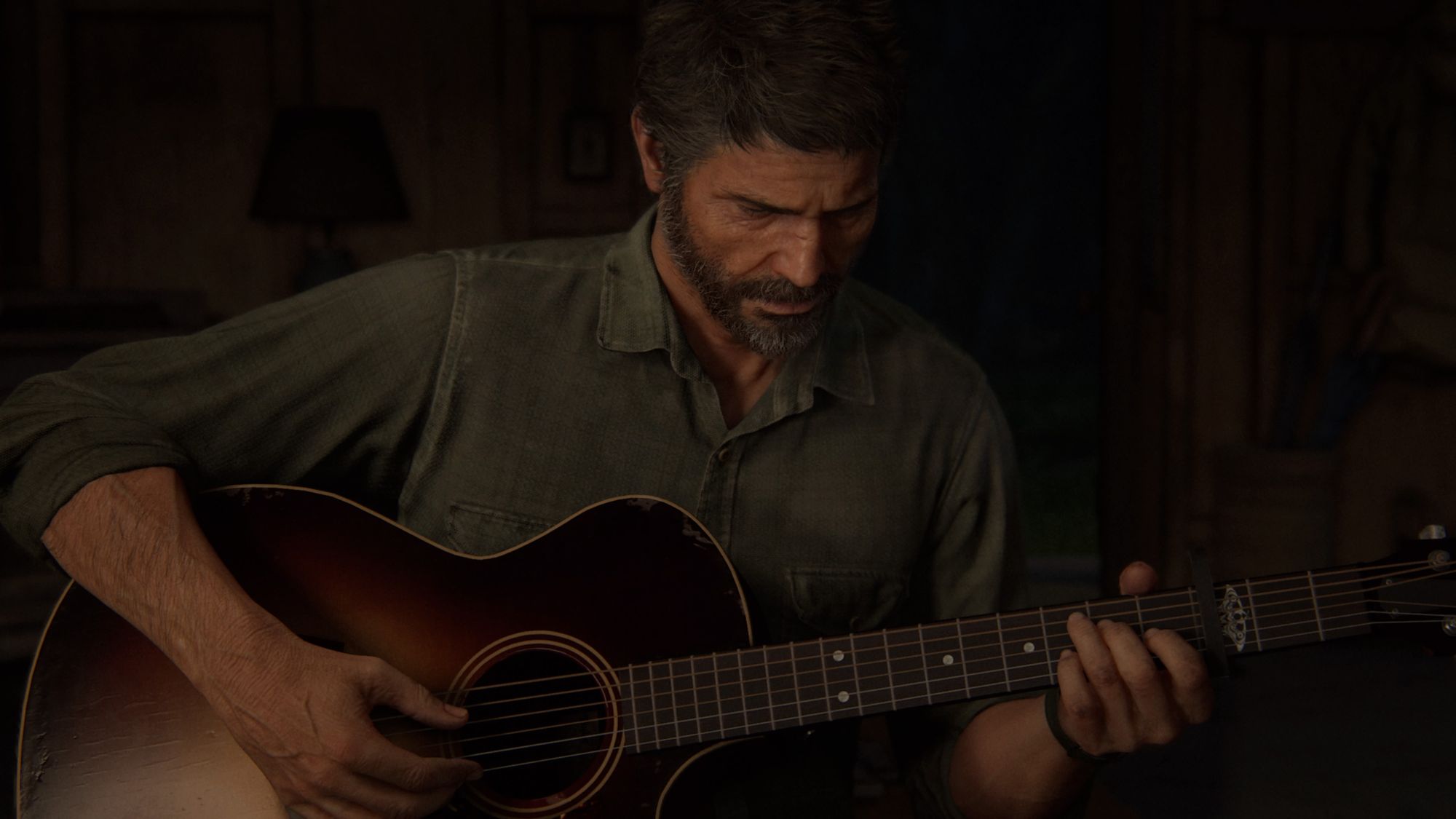
Take On Me goes a step further by telling us that the Ellie we know now won't be the same person at the end of the game: "I'll be gone in a day or two."
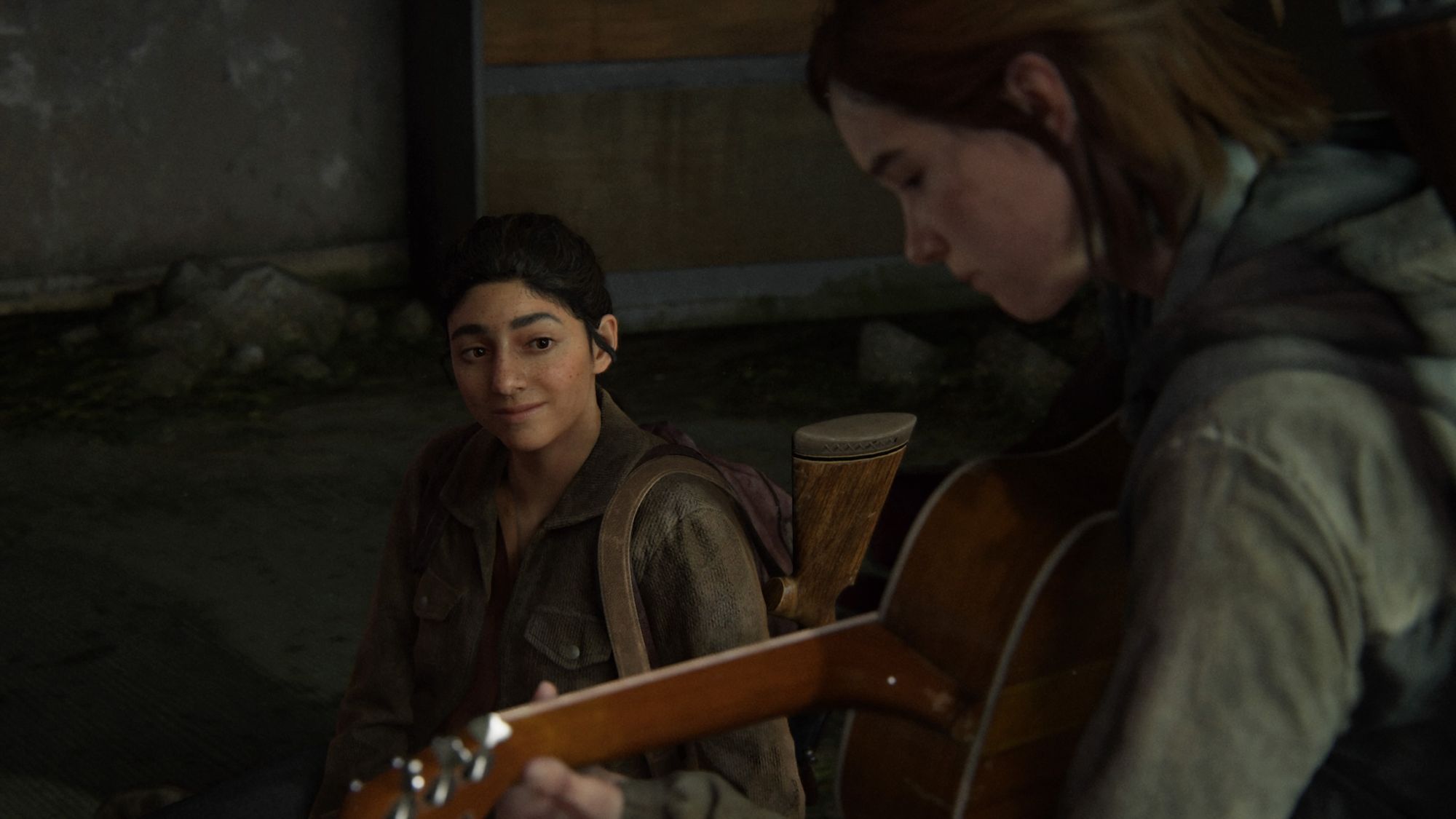
And while not necessarily hinting at things to come within the game, the use of Wayfaring Stranger suggests that Ellie has come to terms with what happened and is going to find herself, so that she can have her redemption arc: like Joel did in the first game with Ellie and Abby had in the second game with Yara and Lev.
Music plays an important narrative role in this game. It foreshadows events to come without directly warning us through exposition. It's so subtle in places that it's easy to miss, and that's why it's one of the best parts of the experience; if you don't notice the music, you're not missing anything essential to the story, but if you do notice it, your experience will be far richer.
Open world games are often conspicuous due to bland environments filled with quest markers and resource indicators. And music is quite often an afterthought - checked box - in many games. But when these elements - world and music - are thoughtfully weaved through the experience, they become essential components of it. They transform into characters in their own right, telling their own stories and influencing how the overarching narrative is perceived by players.
